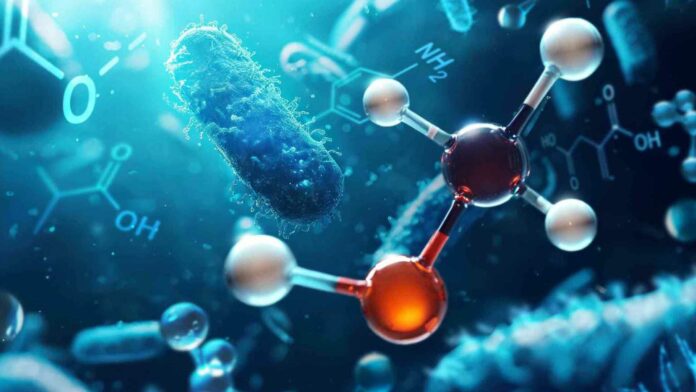The chemical industry needs to rely on fossil resources to generate various chemicals. Globally, it consumes 500 million tons per year or more than one million tons per day.
The true impact of the chemical industry on CO2 emissions is substantially more, roughly six to ten times higher than what is recorded initially, due to the high energy consumption of these chemical processes. This represents around 5% of global emissions.
Hence, scientists are looking for ways to reduce the chemical industry’s dependence on fossil fuels.
ETH Zurich scientists have recently engineered E.coli bacteria in the lab to rely on methanol as a “food source.” Methanol is one of the simplest organic molecules and can be synthesized from the greenhouse gas carbon dioxide and water.
Michael Reiter, a postdoctoral researcher in Vorholt’s research group, said, “There are natural methylotrophs, but using them industrially remains difficult despite considerable research effort.”
Scientists instead work with the biotechnologically well-understood model bacterium Escherichia coli or E. Coli. For several years, the team has been pursuing the idea of equipping the model bacterium, which grows on sugar and can metabolize methanol.
Julia Vorholt, Professor at the Institute of Microbiology at ETH Zurich, said, “This is a major challenge because it requires a complete restructuring of the cell’s metabolism.”
Scientists simulated this change using a computer model. Based on these simulations, they selected two genes to eliminate and three new genes to add. Consequently, the bacteria were able to absorb methanol, if only a little.
For over a year, they kept the bacteria growing in the lab under specific circumstances until they could make all of the cell components from methanol. These artificial methylotrophs developed into extremely efficient organisms over 1,000 more generations, eventually doubling every four hours when fed solely methanol. The bacteria’s enhanced growth rate renders them economically intriguing.
According to scientists, several random mutations have improved methanol use efficiency. It’s interesting to note that many of these mutations result in gene loss. This may sound strange at first, but it turns out that this helps these cells save energy. For example, certain mutations prevent certain metabolic events from occurring backward. This halts pointless chemical reactions and improves the efficiency of the cells’ metabolism.
Vorholt and her colleagues have given the bacteria extra genes for four distinct biosynthetic pathways to investigate the possibilities of synthetic methylotrophs for the biotechnological synthesis of industrially relevant bulk compounds. They now demonstrate in their work that the bacteria did, in fact, constantly produce the desired chemicals.
According to the researchers, this is clear evidence that the bacteria they created can achieve their original objective: serving as a flexible production platform that can accommodate the addition of biosynthetic modules, enabling the bacteria to convert methanol into particular biological compounds. However, to make the bacteria’s commercial use feasible, they must still greatly increase their productivity and efficiency.
Journal Reference:
- Reiter MA, Bradley T, Büchel LA, Keller P, Hegedis E, Gassler T, Vorholt JA: A synthetic methylotrophic Escherichia coli as a chassis for bioproduction from methanol. Nature Catalysis, 23 April 2024, DOI: 10.1038/s41929-024-01137-0
